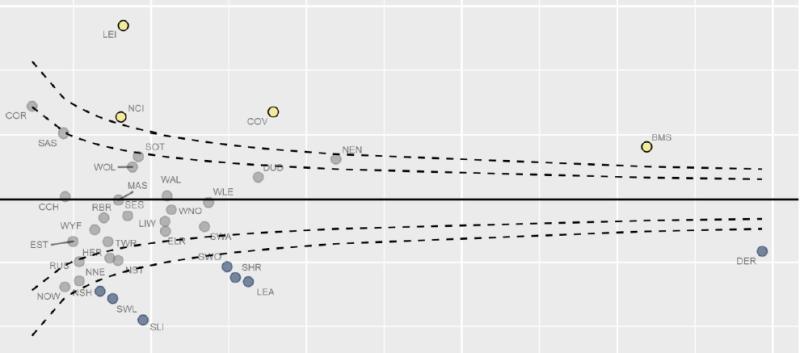NHS specialised services provide care for people with complex or rare medical conditions. Treatments for these conditions are often expensive: While specialised services support a small proportion of the population, approximately one-sixth of the total NHS budget - over £19 billon - was allocated to this area in 2019/20.
The reports published here, address two important and enduring questions about specialised services:
1. To what extent do specialised services follow patterns of need?
Our analysis provides strong prima-facie evidence of widespread geographic inequities in access to specialised services. Patients in some areas such as Birmingham and Solihull and Nottingham appear to be much more likely to receive specialised services than their counterparts with similar levels of need in more rural areas such as Derbyshire, Herefordshire, Worcestershire, and Lincolnshire.
2. What factors are driving the rapid increase in spend on specialised services?
Over the last half-decade, the national budget for specialised services has risen by an average of 8% per year. In our analysis, which focuses on a subset of specialised services and covers the final two years of this period, we find the biggest driver of cost growth was a rise in unit prices paid to the provider. In addition, we find that providers are responding to presenting needs in an increasingly resource intensive fashion. Demographic changes applies a small but sustained pressure to budgets. A shrinkage in the specialised services portfolio has offset these upward cost pressures, but only to a limited extent.
CC BY-NC-ND 4.0

This work is licensed under a Creative Commons Attribution-NonCommercial-NoDerivatives 4.0 International License.
